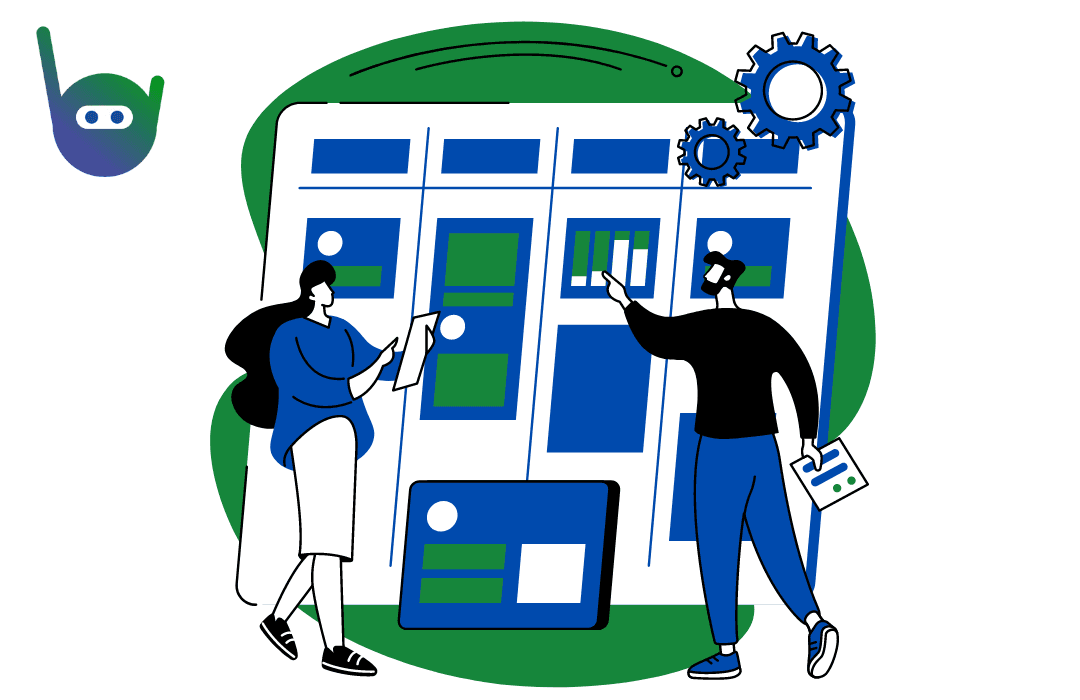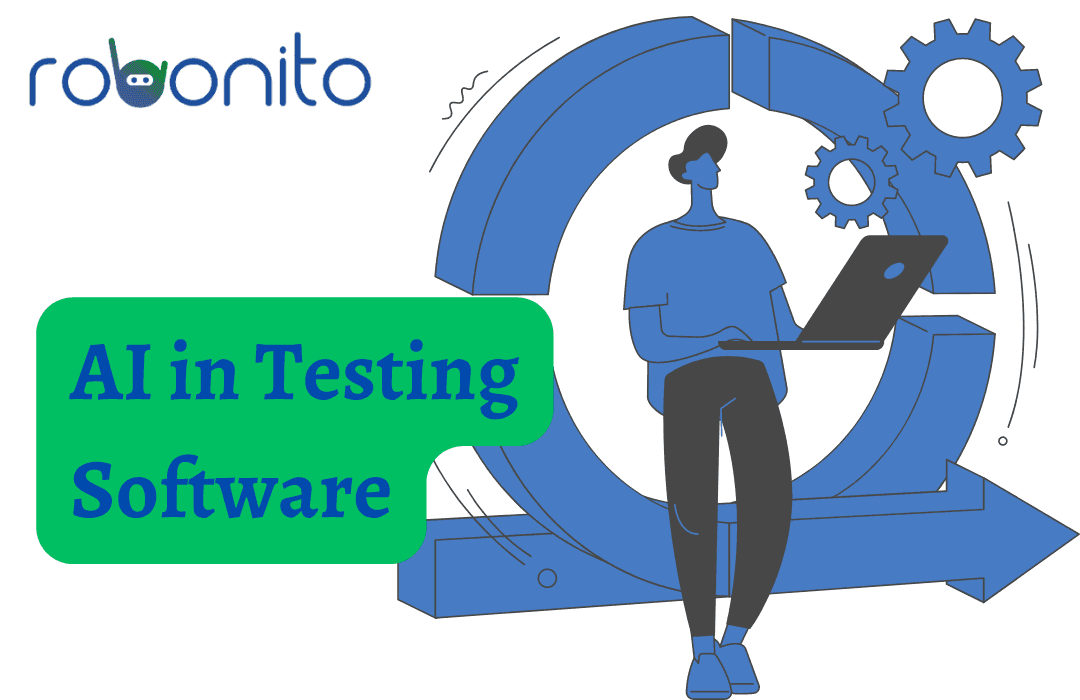In today's rapidly advancing technological landscape, software testing plays a crucial role in ensuring the reliability, functionality, and security of software applications. As software becomes more complex, traditional testing methods alone are often insufficient to meet the demands of modern software development. This is where Artificial Intelligence (AI) emerges as a game-changer, revolutionizing the way software testing is conducted. In this article, we will explore the significant role that AI plays in testing software, its benefits, and its potential implications for the future.
Introduction to the Role Of AI in Testing Software

AI, a branch of computer science that enables machines to simulate human intelligence, has gained significant traction in various fields. In software testing, AI techniques and algorithms are employed to automate and augment traditional testing processes. By leveraging machine learning, natural language processing, and other AI technologies, testing tasks can be performed more efficiently, accurately, and comprehensively.
Automated Test Generation
One of the primary applications of AI in Testing Software is automated test generation. AI algorithms can analyze the software's codebase, specifications, and requirements to automatically generate test cases and scenarios. This approach saves time and effort by eliminating the need for manual test case creation. AI-driven test generation techniques can explore a vast range of inputs, configurations, and edge cases, increasing test coverage and uncovering potential issues that might otherwise go unnoticed.
Test Optimization and Prioritization
AI can also optimize the testing process by intelligently prioritizing test cases. Through machine learning algorithms, AI can identify critical test cases that are likely to uncover defects or vulnerabilities. By focusing resources on high-priority tests, software testing teams can efficiently allocate their time and effort, ensuring that the most significant risks are addressed first. AI-powered test prioritization helps streamline the testing process, enabling faster and more effective bug detection.
Intelligent Bug Detection and Resolution
With the help of AI, software testing can go beyond the traditional methods of bug detection. AI algorithms can analyze codebases, logs, and other software artifacts to identify patterns and anomalies associated with potential bugs. By learning from historical data, AI models can detect previously unknown bugs and suggest potential resolutions. This capability accelerates the bug-fixing process, leading to faster software development cycles and improved overall software quality.
Enhanced Security Testing
Security testing is a critical aspect of software development, particularly in today's digital landscape where cybersecurity threats are prevalent. AI brings significant advancements to security testing by automating vulnerability scanning, penetration testing, and threat analysis. AI-powered security testing tools can simulate sophisticated attack scenarios, identify potential vulnerabilities, and provide recommendations for mitigating risks. This proactive approach to security testing helps organizations safeguard their software applications against potential cyber threats.
Impact of AI on Test Coverage
AI has a profound impact on test coverage, ensuring that software is thoroughly tested across different scenarios and configurations. By using AI algorithms, software testing can explore a vast number of combinations, inputs, and edge cases that would be impractical to cover manually. AI-driven test coverage analysis helps identify areas that require more testing, improving the overall quality and reliability of the software.
Challenges and Limitations of AI in Testing Software
While AI brings numerous benefits to software testing, it also faces certain challenges and limitations. One of the main challenges is the need for extensive and diverse training data to train AI models effectively. Additionally, the interpretability and explainability of AI models in software testing remain areas of concern. It is crucial to strike a balance between AI-driven automation and human expertise to ensure effective software testing.
Future Prospects of AI in Testing Software
The future of AI in Testing Software is promising. As AI technologies continue to advance, we can expect more sophisticated and intelligent testing tools and frameworks. AI can assist in predicting defects, generating test cases in real time, and adapting to evolving software systems. Furthermore, AI can facilitate continuous testing and integration, enabling seamless delivery of software updates and enhancements.
Conclusion
AI has revolutionized the field of software testing, offering automation, optimization, and intelligent bug detection capabilities. By leveraging AI algorithms, software testing teams can enhance their efficiency, improve test coverage, and ensure the delivery of high-quality software applications. While challenges and limitations exist, the future prospects of AI in Testing Software hold great potential for further advancements in the field.
Revolutionize your software testing with Robonito, the ultimate no-code RPA automation testing tool. Say goodbye to endless testing hours – Robonito slashes testing time by a staggering 98%! Ready to experience the future of software testing? BOOK A FREE DEMO NOW and transform your testing process today!
FAQs
1. Can AI completely replace manual software testing?
No, AI cannot entirely replace manual software testing. While AI brings automation and efficiency to the testing process, human expertise is still necessary for certain tasks such as test strategy, domain knowledge, and user experience evaluation.
2. Is AI in Testing Software only applicable to large organizations?
No, AI in Testing Software can benefit organizations of all sizes. While large organizations may have more resources to invest in AI testing tools, smaller organizations can leverage open-source AI frameworks and cloud-based testing services to harness the power of AI in their testing processes.
3. Does AI eliminate the need for software testers?
No, AI does not eliminate the need for software testers. Instead, it augments their capabilities by automating repetitive tasks and assisting in test case generation, bug detection, and optimization. Software testers play a vital role in designing test strategies, interpreting AI-driven results, and ensuring the overall quality of the software.
4. Are there any ethical considerations in using AI for software testing?
Yes, there are ethical considerations in using AI for software testing. Organizations must ensure that AI algorithms and models are fair, unbiased, and transparent. Additionally, data privacy and security should be maintained when using AI techniques in testing sensitive or confidential software applications.
5. Where can I learn more about AI in Testing Software?
To learn more about AI in Testing Software, you can explore online resources, attend conferences and webinars on software testing and AI, and engage with professional communities and forums dedicated to software testing and AI integration.
